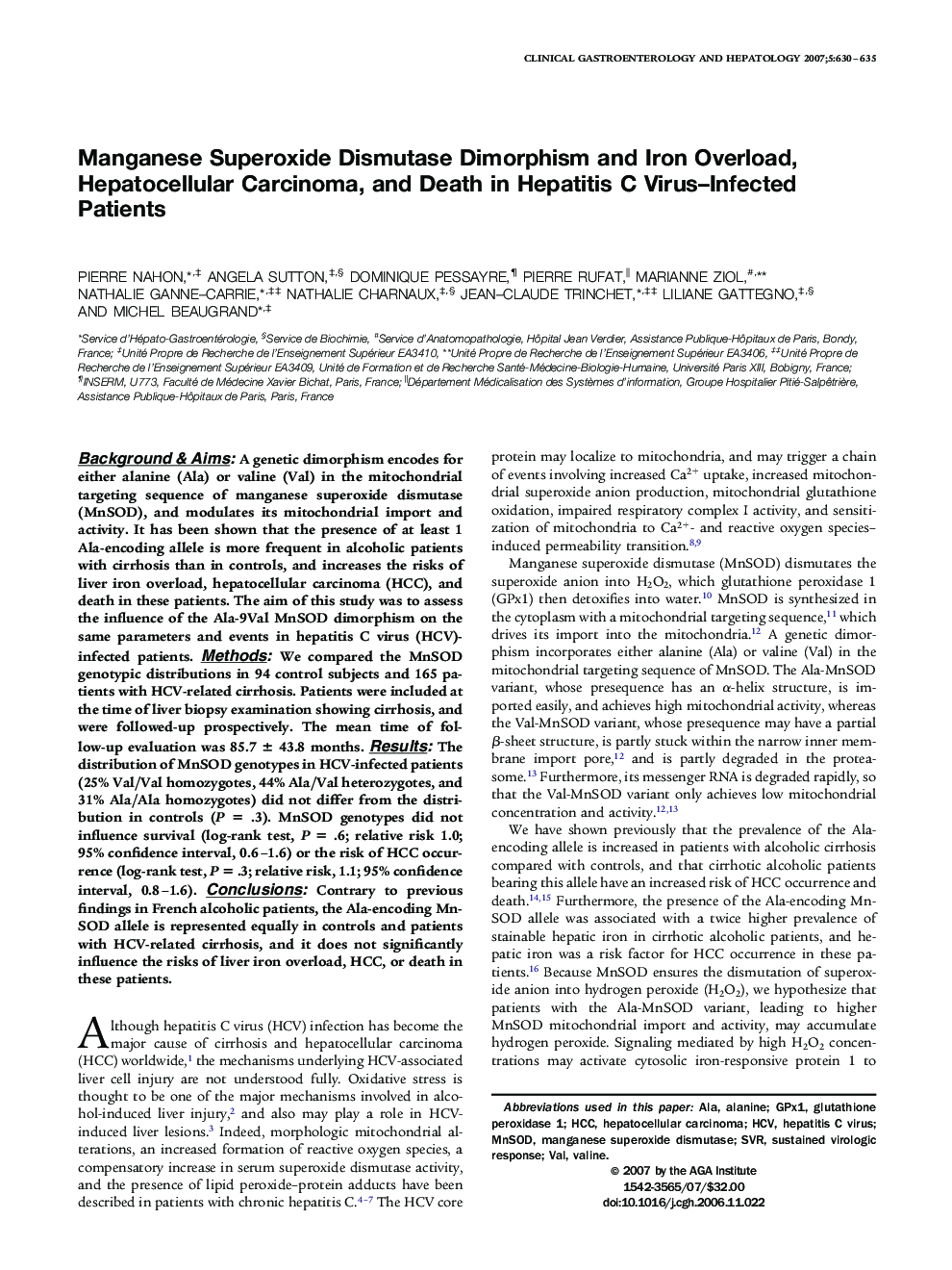| Article ID | Journal | Published Year | Pages | File Type |
|---|---|---|---|---|
| 3285595 | Clinical Gastroenterology and Hepatology | 2007 | 6 Pages |
Abstract
Background & Aims: A genetic dimorphism encodes for either alanine (Ala) or valine (Val) in the mitochondrial targeting sequence of manganese superoxide dismutase (MnSOD), and modulates its mitochondrial import and activity. It has been shown that the presence of at least 1 Ala-encoding allele is more frequent in alcoholic patients with cirrhosis than in controls, and increases the risks of liver iron overload, hepatocellular carcinoma (HCC), and death in these patients. The aim of this study was to assess the influence of the Ala-9Val MnSOD dimorphism on the same parameters and events in hepatitis C virus (HCV)-infected patients. Methods: We compared the MnSOD genotypic distributions in 94 control subjects and 165 patients with HCV-related cirrhosis. Patients were included at the time of liver biopsy examination showing cirrhosis, and were followed-up prospectively. The mean time of follow-up evaluation was 85.7 ± 43.8 months. Results: The distribution of MnSOD genotypes in HCV-infected patients (25% Val/Val homozygotes, 44% Ala/Val heterozygotes, and 31% Ala/Ala homozygotes) did not differ from the distribution in controls (P = .3). MnSOD genotypes did not influence survival (log-rank test, P = .6; relative risk 1.0; 95% confidence interval, 0.6-1.6) or the risk of HCC occurrence (log-rank test, P = .3; relative risk, 1.1; 95% confidence interval, 0.8-1.6). Conclusions: Contrary to previous findings in French alcoholic patients, the Ala-encoding MnSOD allele is represented equally in controls and patients with HCV-related cirrhosis, and it does not significantly influence the risks of liver iron overload, HCC, or death in these patients.
Keywords
Related Topics
Health Sciences
Medicine and Dentistry
Gastroenterology
Authors
Pierre Nahon, Angela Sutton, Dominique Pessayre, Pierre Rufat, Marianne Ziol, Nathalie Ganne-Carrie, Nathalie Charnaux, Jean-Claude Trinchet, Liliane Gattegno, Michel Beaugrand,
